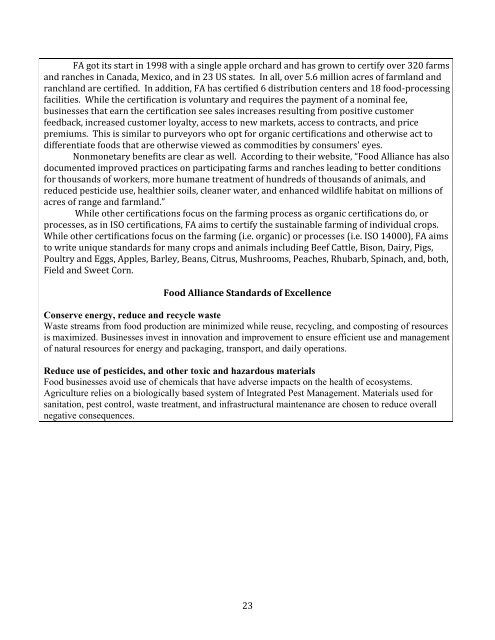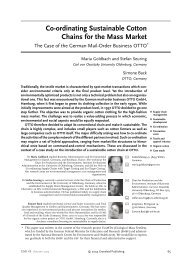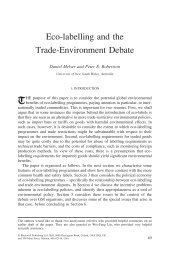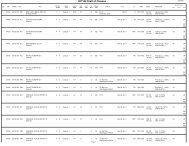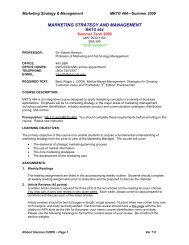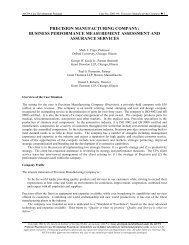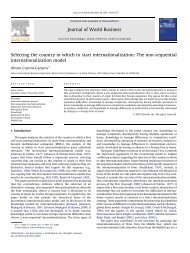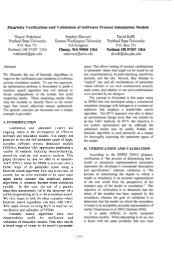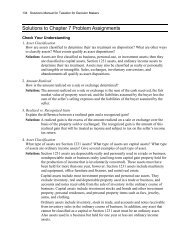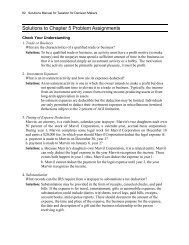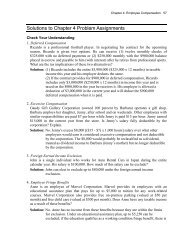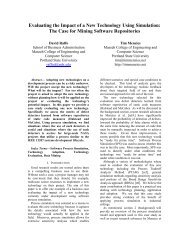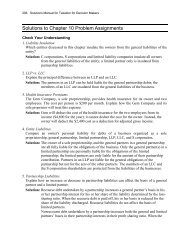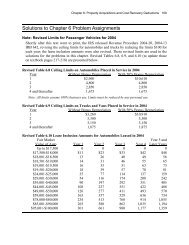Burgerville Supply Chain Case - School of Business Administration ...
Burgerville Supply Chain Case - School of Business Administration ...
Burgerville Supply Chain Case - School of Business Administration ...
Create successful ePaper yourself
Turn your PDF publications into a flip-book with our unique Google optimized e-Paper software.
FA got its start in 1998 with a single apple orchard and has grown to certify over 320 farms<br />
and ranches in Canada, Mexico, and in 23 US states. In all, over 5.6 million acres <strong>of</strong> farmland and<br />
ranchland are certified. In addition, FA has certified 6 distribution centers and 18 food-processing<br />
facilities. While the certification is voluntary and requires the payment <strong>of</strong> a nominal fee,<br />
businesses that earn the certification see sales increases resulting from positive customer<br />
feedback, increased customer loyalty, access to new markets, access to contracts, and price<br />
premiums. This is similar to purveyors who opt for organic certifications and otherwise act to<br />
differentiate foods that are otherwise viewed as commodities by consumers' eyes.<br />
Nonmonetary benefits are clear as well. According to their website, “Food Alliance has also<br />
documented improved practices on participating farms and ranches leading to better conditions<br />
for thousands <strong>of</strong> workers, more humane treatment <strong>of</strong> hundreds <strong>of</strong> thousands <strong>of</strong> animals, and<br />
reduced pesticide use, healthier soils, cleaner water, and enhanced wildlife habitat on millions <strong>of</strong><br />
acres <strong>of</strong> range and farmland.”<br />
While other certifications focus on the farming process as organic certifications do, or<br />
processes, as in ISO certifications, FA aims to certify the sustainable farming <strong>of</strong> individual crops.<br />
While other certifications focus on the farming (i.e. organic) or processes (i.e. ISO 14000), FA aims<br />
to write unique standards for many crops and animals including Beef Cattle, Bison, Dairy, Pigs,<br />
Poultry and Eggs, Apples, Barley, Beans, Citrus, Mushrooms, Peaches, Rhubarb, Spinach, and, both,<br />
Field and Sweet Corn.<br />
Food Alliance Standards <strong>of</strong> Excellence<br />
Conserve energy, reduce and recycle waste<br />
Waste streams from food production are minimized while reuse, recycling, and composting <strong>of</strong> resources<br />
is maximized. <strong>Business</strong>es invest in innovation and improvement to ensure efficient use and management<br />
<strong>of</strong> natural resources for energy and packaging, transport, and daily operations.<br />
Reduce use <strong>of</strong> pesticides, and other toxic and hazardous materials<br />
Food businesses avoid use <strong>of</strong> chemicals that have adverse impacts on the health <strong>of</strong> ecosystems.<br />
Agriculture relies on a biologically based system <strong>of</strong> Integrated Pest Management. Materials used for<br />
sanitation, pest control, waste treatment, and infrastructural maintenance are chosen to reduce overall<br />
negative consequences.<br />
23


